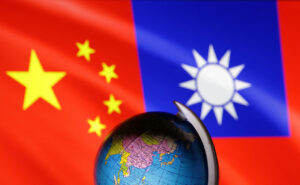ANALYSIS-China, Taiwan, US share interest in avoiding crisis over California visit

LOS ANGELES – China, Taiwan, and the United States all share a common interest in ensuring this week’s California stopover by Taiwan’s president gets the focus each thinks it deserves, but without setting off a new crisis.
Taiwanese President Tsai Ing-wen is due in Los Angeles on Wednesday when she will meet US House of Representatives Speaker Kevin McCarthy, the first such meeting on US soil.
It is sure to elicit a forceful reaction from Beijing, which considers Taiwan part of its territory. China’s military conducted large-scale exercises, fired missiles over Taiwan and cut military contacts with Washington after McCarthy’s predecessor Nancy Pelosi visited the self-governed island last August.
But China’s response this time may be less extreme. The US side and Taiwan have both taken steps to make the trip less provocative for China’s leaders, sources familiar with the planning say. These include holding the Tsai-McCarthy meeting in California rather than closer to Washington or in Taiwan itself, and setting up an agenda for Tsai with few public appearances.
China has a strong incentive to temper its reaction at a moment when it is trying to rebuild ties with Europe and as Taiwan prepares for an early 2024 presidential election, analysts say.
McCarthy, as House speaker, is third in line to the US leadership and he has said publicly that he does not rule out a future visit to Taiwan.
Xu Xueyuan, charge d’affaires at China’s Washington embassy, said last week that McCarthy meeting Tsai “could lead to another serious confrontation in the China-US relationship.” On Tuesday China’s foreign ministry said it would “closely monitor” the meeting and “resolutely defend” Chinese sovereignty.
Jacob Stokes of Washington’s Center for a New American Security think tank said it was “clear that Taipei and Washington — as well as Beijing to some extent — are trying to carefully manage both the substance and optics of President Tsai’s transit.”
Washington has no formal diplomatic relations with Taiwan, but is bound by law to provide it with the means to defend itself. Beijing has never renounced using force to bring Taiwan under its control and Western officials fear a conflict over the island is increasingly likely.
Tsai’s Los Angeles stop comes after a 48-hour stopover in New York last week en route to Central America to visit two of Taiwan’s few remaining diplomatic allies.
LOW PROFILE
A US official told Reuters the State Department had negotiated the US portions of Tsai’s trip carefully with her team to ensure, among other things, that the New York stop would be low profile and do little to provoke Beijing.
There was a similar discussion for the California leg, according to a person familiar with the planning for the McCarthy meeting.
“The Taiwanese said ‘Let’s go low-key,’ said the person, adding that Tsai and her ruling Democratic Progressive Party are concerned about the impact on next year’s presidential election in Taiwan.
Taiwan’s opposition Kuomintang party (KMT) favors stable relations with China and some analysts believe soaring tensions between Taipei and Beijing would favor the KMT.
Tsai’s New York activities were largely closed to the media and in press briefings US officials have sought to portray her stopovers as routine.
Asked about the planning, a State Department spokesperson said Tsai’s transit was “consistent with longstanding US practice, consistent with the unofficial nature of our relations with Taiwan,” and China should “not use it as a pretext to overreact.”
The Taipei Economic and Cultural Representative Office, which represents Taiwan’s interests in the United States, also did not comment on trip details but said the transit was “in line with long standing practice.”
BEIJING’S CALCULATION
China’s ruling Communist Party has its own considerations that could moderate its reaction.
With an eye the Taiwan election, China invited former Taiwanese President Ma Ying-jeou of the KMT party for a visit coinciding with Tsai’s US stopovers.
And this week Beijing also hosts French President Emmanuel Macron and European Commission President Ursula von der Leyen as China seeks to improve its strained relations with Europe.
A European official said the European visits may temper Beijing’s reaction given Chinese President Xi Jinping is trying to present itself as a peacemaker in Ukraine.
“It would look very bad for Xi in European eyes if he staged more war games around Taiwan,” the official said, while a Taipei-based Asian diplomat said Beijing would also not want to embarrass Ma with war games.
“Beijing does indeed have multiple audiences to consider,” said Douglas Paal, a former US representative in Taiwan.
“The tough calibration will be for China to find something that signals displeasure with Tsai meeting a (House) Speaker for the first time on American soil, while not looking insane in reacting as strongly as when Pelosi became the first speaker to travel to Taiwan.”
Ivan Kanapathy, a former US National Security Council staffer for Asia, said Beijing would hope with Ma’s visit to convince Taiwanese that closer ties with China would bring stability and prosperity and that it was also trying to resuscitate European foreign investment.
“Taken together, this means that further retaliation will likely be relatively mild,” he said. — Reuters




